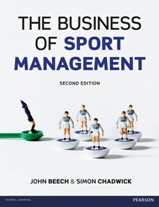‘Blowing the Whistle’
Posted by John Beech on May 11, 2010
There is a thin line between tax avoidance – the perfectly legal exploitation of the rules of taxation in order to minimise the amount of tax to be paid – and tax evasion – stepping beyond that line into an illegal act in order to escape due tax, and it’s a line that few even approach. Not so in the beautiful game/ugly business. The attempt to form a CVA by Portsmouth’s Administrator has already raised an issue in this area over the payment to players’ companies of image rights rather than the payment of conventional salaries which are liable to the normal rates of income tax. Tax issues are also the basis of recent moves by HMRC against Harry Redknapp, Milan Mandarić and Peter Storrie.
Worried that any discussion of the finer points of taxation, and the related subject of club ownership based in offshore tax havens, is going to be unutterably dry and bordering on the incomprehensible? Wrong!
A new report called ‘Blowing the Whistle: Time’s Up for Financial Secrecy‘ has just been published by Christian Aid, who worked with the Football Supporters Federation and Supporters Direct in its compilation.
The report can be summarised thus:
This report looks at the finances of league football in the UK and the Republic of Ireland – throwing into sharp relief the boardroom shenanigans that have brought a number of clubs to their knees – and it analyses the impact of financial secrecy on football and the developing world.
We are not suggesting that anything illicit or untoward is taking place in the clubs that we identify. We also recognise that some people will use tax havens to reduce tax, rather than conceal information, and that tax reduction will sometimes reflect a genuine shift of economic activity, rather than hidden tax abuse. Our concern, however, is that the opaque nature of tax havens masks the truth, whether or not there is anything to hide.
With the World Cup in mind, we also present the host country South Africa as a case history, looking at what financial secrecy means to the most powerful economy on the African continent.
Among the findings are:
Manchester United, recently pipped to the Premier League title, [is] still top a new Football Secrecy League.
A further 14 Premier League clubs and another 10 from around Britain and Ireland are effectively based in tax havens.
It also explains how financial secrecy means trade-related tax-dodging costs poor countries $160bn every year.
This is one-and-a-half-times the global aid budget, and enough, if used according to current spending patterns, to save the lives of 350,000 children under five.
The clubs are named by the way.
The style of the report is eminently accessible – you certainly don’t need to be an accountant to understand it – notwithstanding that it was researched by two Fellows of the Institute of Chartered Accountants in England and Wales. Download it now!
Also out is a report called Player and Referee, Conflicting Interests and the 2010 Fifa World Cup by South Africa’s Institute of Security Studies which, through a series of case studies looks at some worrying aspects of the imminent event (direct download here).
Both reports are available directly through links on my LINKS webpage, in a section of Reports which I will be expanding in the immediate future.



Leave a comment